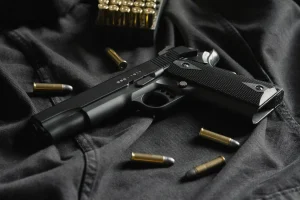The European Union warned Thursday that it will ban drugs giant AstraZeneca from exporting coronavirus vaccines to the UK and other countries until it makes good on its promised deliveries to the bloc.
EU chief Ursula von der Leyen’s stark warning came after a video summit of all 27 EU leaders, and stoked fears that cross-Channel rivalry could damage global efforts to combat the pandemic.
Some leaders stressed that an embargo should be a last resort if negotiations for a better way of sharing vaccine production come up short, but von der Leyen adopted an uncompromising tone.
Also Read: Denmark extends pause of AstraZeneca vaccine for three weeks
“I think it is clear that first of all the company (AstraZeneca) has to catch up, has to honour the contract it has with the European member states, before it can engage again in exporting vaccines,” she said.
The focus of the latest row is AstraZeneca’s plant in the Netherlands, operated by Halix, which Prime Minister Boris Johnson’s government claims as part of the British vaccine supply chain.
The Netherlands and Belgium, centres of EU vaccine production, are skittish at talk of an embargo, fearful that disruption to global supply chains could hurt other firms’ production.
But Dutch Prime Minister Mark Rutte told reporters that he had warned Johnson that the Netherlands would enforce any EU decision to halt Halix exports — even as he hoped that there would be a quick resolution.
“Luckily at least the two are talking and it seems, I think, on Saturday or soon after they could come to an agreement,” Rutte told reporters.
“And that would be very helpful, because we are friends, the UK and the rest of Europe, and we need each other.”
Also Read: Canada adds blood clot warning to AstraZeneca vaccine but says its safe
London was angered and alarmed by von der Leyen’s decision this week to tighten Europe’s export control mechanism to give the Commission more leeway to block exports if EU vaccine supplies are at stake.
And Johnson is also concerned that a ban that extends beyond UK-based AstraZeneca’s disputed supply could also block vaccines produced in Belgium for BioNTech/Pfizer.
This would imperil Britain’s vaccination drive, which has so far proved more successful than that of most EU member states, hit by a massive shortfall in deliveries and troubled national roll-outs.
As tempers frayed this week, a joint statement by the British government and the commission on Wednesday said both sides are looking for ways to cooperate towards a “win-win” compromise, but no details were given.
At the summit, EU leaders backed the commission’s export-authorisation scheme but also stressed that international supply chains must be protected.
“Accelerating the production, delivery and deployment of vaccines remains essential and urgent to overcome the crisis. Efforts to this end must be further intensified,” the leaders said.
While Britain has accused the European Union of vaccine “nationalism” over its moves, von der Leyen noted that the bloc was “the region that exports the most vaccines worldwide”.
She said that, since the beginning of December, companies in the EU had sent 77 million doses of COVID vaccines out of the bloc — with an EU official noting that more than a quarter of those went to Britain.
But von der Leyen said the next three months will see overall vaccine supplies more than triple and the EU — population 450 million — is on track to see 70% of adults fully vaccinated by mid-September.
Also Read: India bans export of AstraZeneca’s COVID-19 vaccine as cases rise: Report
AstraZeneca is expected to deliver 30 million doses to the EU in the first quarter — a pledge already radically reduced from the 120 million doses it was initially contracted to provide.
Another sensitive issue is the distribution of vaccines within Europe.
A group of smaller states led by Austria demanded more vaccines after they missed an earlier opportunity to secure a bigger share of costlier versions by betting on the cheaper — but unreliably supplied — AstraZeneca one.
But after the talks, Rutte said that Austria does not seem to be in “bad shape at the moment” while the member states had asked ambassadors to find a solution for harder-hit Bulgaria, Croatia and Latvia.
One bright spot for the leaders came toward the end of their summit, when US counterpart President Joe Biden dialled in to give impetus to a new era in trans-Atlantic relations.
European Council president Charles Michel declared: “By standing together, shoulder-to-shoulder, the EU and US can show that democracies are best suited to protect citizens, promote dignity, and generate prosperity.”






